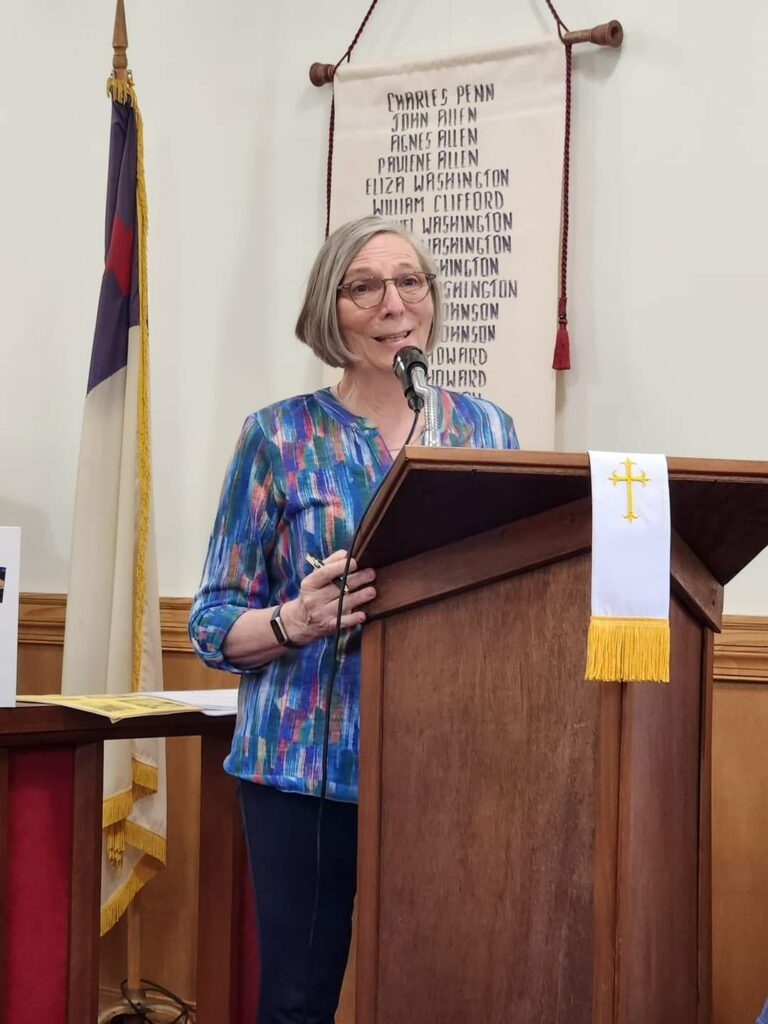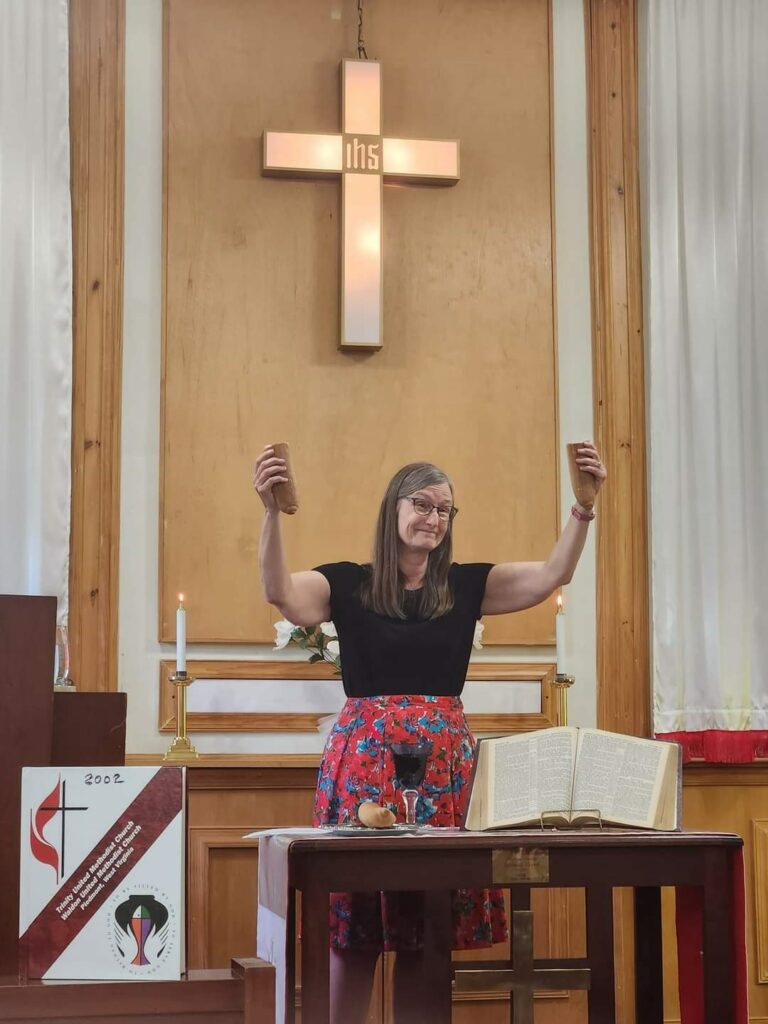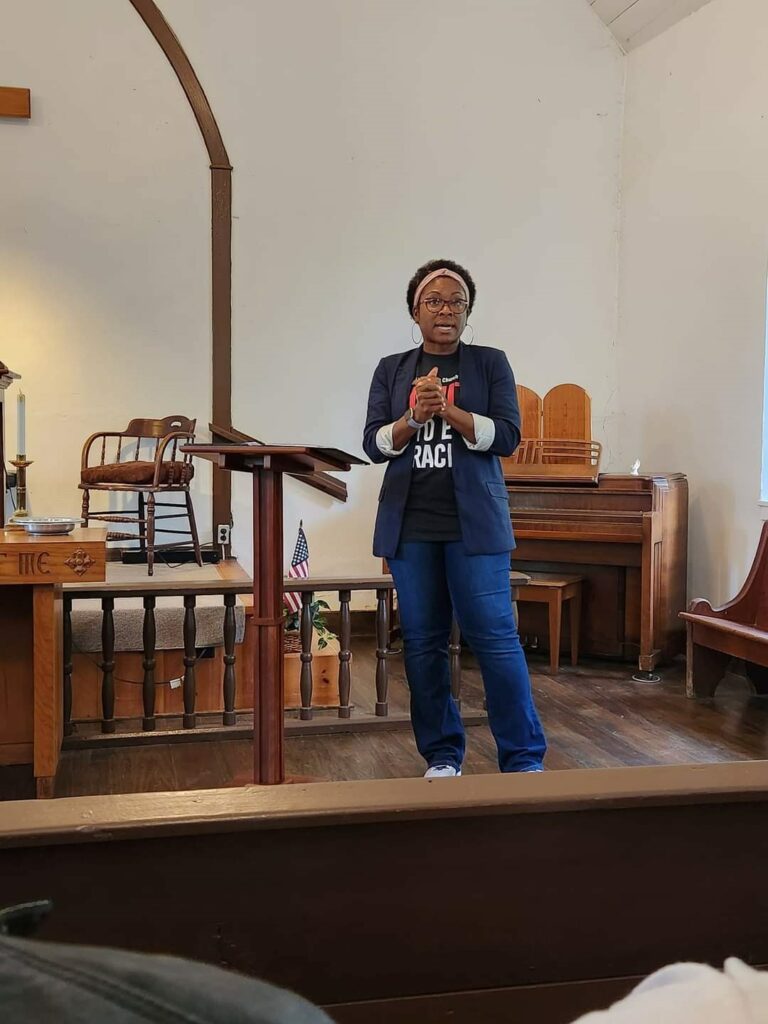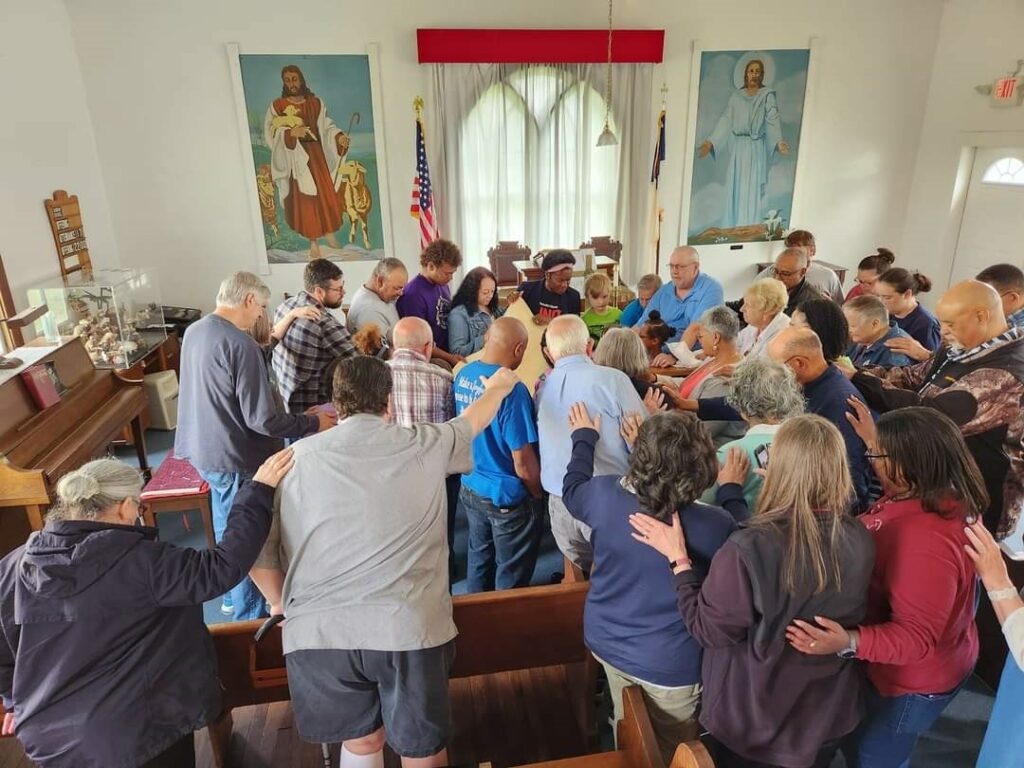As Bishop Sandra Steiner Ball spoke at opening worship of this year’s West Virginia Conference Justice & Advocacy Team’s Spring Retreat, she reminded those in attendance of the great chasm that still exists in our society – one of fear and misunderstanding that continues to fuel the hate at the heart of the systemic racism that continues to pervade our society.
Continuing the work of bridging that chasm was at the heart of “The Black Church: This is Our Story, This is Our Song,” and what brought over fifty United Methodists from around the Conference to four of the Potomac Highlands District’s historically Black churches on May 12-13.
“It was wonderful for me to visit four of our churches again and hear their stories,” says Bishop Steiner Ball. “That is where our collective responsibility and work on anti-racism, accompaniment, and good advocacy begins – by sitting with our family in Christ, in the different spaces of mission and ministry, listening deeply, praying fervently, learning, repenting, and working collaboratively allowing God’s spirit to transform us.”
Justice & Advocacy Chairwoman Martha Hill echoes those thoughts and hopes that this year’s retreat is just the beginning of a continuing effort by her team and the Conference at large to engage in the hard work of combatting racism while also developing ways to uplift our Black congregations and their ministries.
“This is the start of what I hope is a continuing conversation,” says J&A Chairwoman Martha Hill, who along with Conference Administrative Assistant Angela Jones and Communications Director Deborah Coble planned the event. “We wanted to facilitate a gathering with our Black churches. We still have work to do as we walk together with our Black brothers and sisters.”
The work began Friday evening at Piedmont’s Waldon UMC with worship and Holy Communion, then moved to Janes UMC in Keyser, where after a fellowship meal attendees moved to the sanctuary to view a portion of Dr. Henry Louis Gates Jr’s docuseries “The Black Church: This is Our Story, This is Our Song,” which originally aired on the Public Broadcasting Service (PBS) during Black History Month in February 2021. Dr. Gates, a Piedmont native, grew up in Waldon UMC.
Day Two began with a visit to St. Paul’s UMC in Williamsport, where in addition to hearing from various members of that congregation about its storied past and connection to the Black Community, those gathered also were introduced to and learned from Rev. Enger Muteteke, an elder in the Baltimore Washington Conference and who currently serves as Senior Director of Programs and Education for the General Commission on Religion & Race.
Rev. Muteteke also has West Virginia ties. Her mother is a Welch native with connections to Court Street UMC, also one of the WVUMC’s historically Black churches. Muteteke says that the retreat was a time to “authentically and openly engage” in dialogue about matters of race and racism still adversely affecting our churches and society at large.
“It is vital to note that the West Virginia Conference has begun and is continuing the hard work of dismantling racism and exploring ways to engage intercultural competency in ministry,” she says. “Racism is a sin and, as with every other sin, must be continually rooted out by our resisting, renouncing, and rejecting sin – in whatever form it presents itself – as baptized children of God.”
The retreat concluded Saturday afternoon at Moorefield’s Asbury UMC with a time of learning about the history of that congregation, followed by a catered lunch. Rev. Muteteke then facilitated a workshop that zeroed in on our call to accompany those who have been historically marginalized, walking with them, listening to them, and treating them with “respect, empathy, and dignity.”
Following a catered lunch there was a time of processing the weekend and discussing the future of the Black Church in the Conference, and various ways the people called United Methodists in West Virginia can walk alongside and resource our fourteen remaining Black congregations so that they may continue to stay relevant and meet the needs of their communities. A brief devotion concluded the weekend gathering.
“(Rev. Muteteke) did a beautiful job of resourcing us throughout our weekend journey of deep listening,” says Bishop Steiner Ball. “Her leadership helped to remind us that it takes all of us and all our congregations working in partnership to reach and engage the rich diversity of people in our own back yard, as well as people throughout our global denomination, with the gospel of Jesus Christ more effectively. She also challenged us to examine and develop strategies that address issues of inequity in the Church.”
But, as Hill underscores with her comment, “the learning will continue,” and Rev. Muteteke reiterates, the sense as the spring retreat drew to an end was that it was only the beginning of the work to close that chasm of fear the Bishop referenced to open the weekend gathering.
“The work of dismantling racism in the WVUMC has begun does not end with the retreat weekend.” Rev. Muteteke says. “This work is a continual process and way of being for both white folks and Black, Indigenous, and People of color. God graces us to do the work. And this work does look different and will be different for white folks and BIPOC people.”



